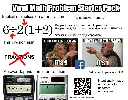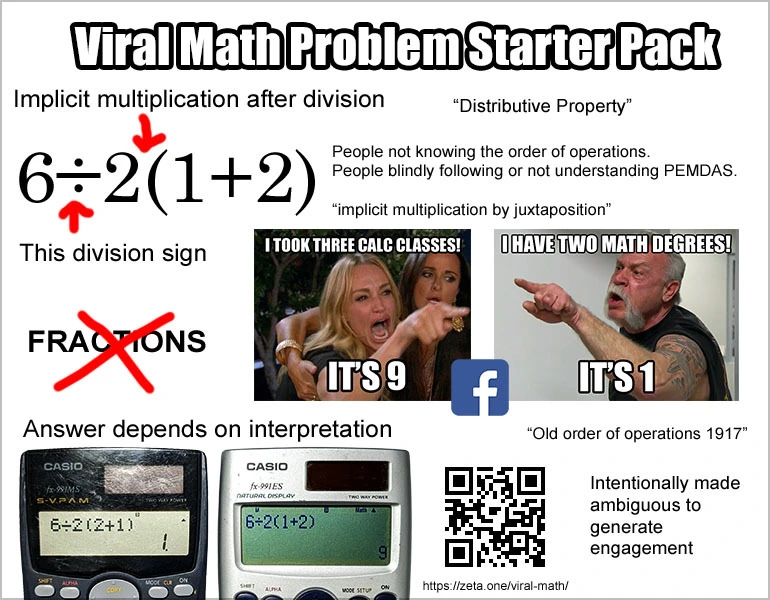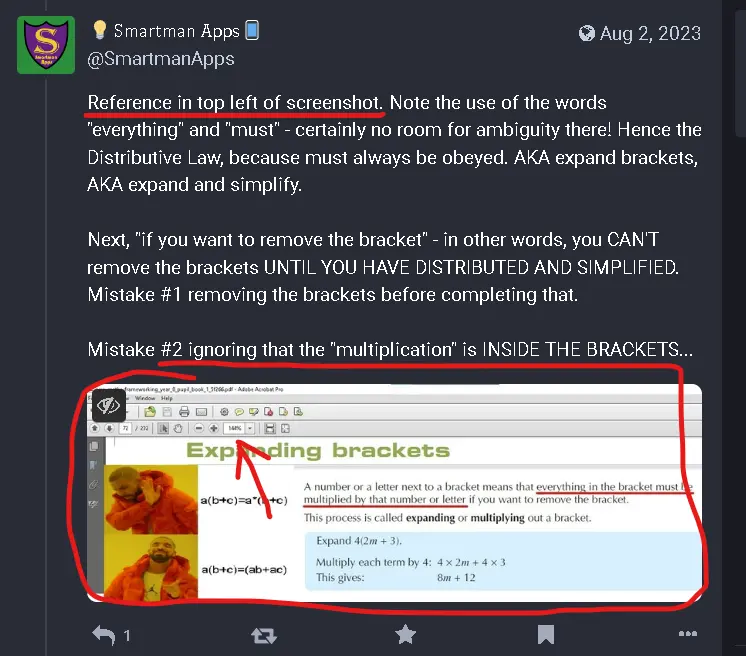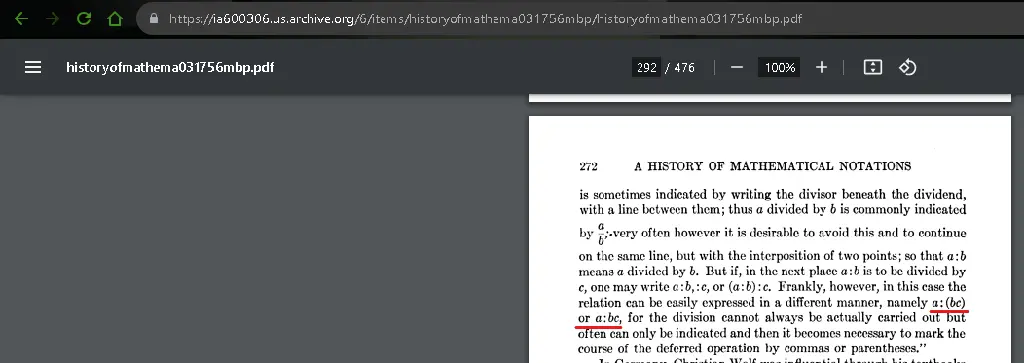I told you, in my thread - multiple ones. You haven’t provided any textbooks at all that have “weak juxtaposition”. i.e. you keep asking me for more evidence whilst never producing any of your own.
You seem to have missed the point. I'm holding you to your own standard, as you are the one that used evidence as an excuse for dismissal first without providing evidence for your own position.
I didn’t “just happen” to include the name of the textbook and page number - that was quite deliberate. Not sure why you don’t want to believe a screenshot, especially since you can’t quote any that have “weak juxtaposition” in the first place.
BTW I just tried Googling it and it was the first hit. You’re welcome.
You seem to have missed the point. You're providing a bad source and expecting the person you're arguing against to do legwork. I never said I couldn't find the source. I'm saying I shouldn't have to go looking.
You don’t - the screenshots of the relevant pages are right there. You’re the one choosing not to believe what is there in black and white, in multiple textbooks.
You've provided a single textbook, first of all. Second of all, the argument is that both sides are valid and accepted depending on who you ask, even amongst educated echelons. The fact there exists textbooks that support strong juxtaposition does nothing to that argument.
But you want some evidence, so here's an article from someone who writes textbooks speaking on the ambiguity. Again, the ambiguity exists and your claim that it doesn't according to educated professors is unsubstantiated. There are of course professors who support strong juxtaposition, but there are also professors who support weak juxtaposition and professors that merely acknowledge the ambiguity exist. The rules of mathematics you claim are set in stone aren't relevant (and aren't as set in stone as you imagine) but that's not entirely relevant. What is relevant is there is an argument and it's not just uneducated folk mistaking the 'truth'.
People who aren’t high school Maths teachers (the ones who actually teach this topic). Did you notice that neither The Distributive Law nor Terms are mentioned at any point whatsoever? That’s like saying “I don’t remember what I did at Xmas, so therefore it’s ambiguous whether Xmas ever happened at all, and anyone who says it definitely did is wrong”.
You are correct, I suppose a mathematics professor from Harvard (see my previous link for the relevant discussion of the ambiguity) isn't at the high school level.
But wait, there's more. Here's another source from another mathematics professor. This one 'supports' weak juxtaposition but really mostly just points at the ambiguity. Which again, is what I'm going for, that the ambiguity exists and one side is not immediately justified/'correct'.
So what do you think he is complaining about?
That's a leading question and is completely unhelpful to the discussion. I asked you to point out where exactly, and with what wording, your position is supported in the provided text. Please do that.



